Google’s Android platform is powered by a novel technology that transcends conventional hardware and software. And just as Android hardware and software has looked to Apple for inspiration, this compelling new “flexibly adaptive logic†is also related to something that first originated within Apple.
Flexibly adaptive logic, or “Flawgic,†allows the Android platform to terminate any sort of criticism before it can affect how the system performs. Flawgic is neither hardware nor software; it’s installed directly into public mindshare via a virus spread by talking heads.
Initially, the critical shield of Flawgic was virtually identical to "being in beta," a formerly negative trait that Google turned into a positive by associating it with cool new experiments (like Google Maps) that deserved a lot of credit simply for existing.
While "being in beta" excused some of the warts of Google’s freeware products and services, Flawgic takes this to the next level. Flawgic allows every new Android-based product (or anything else Google does) a pass in every respect: appearance, usability, features, reliability, a target market, even sustainable profitability as a product.
If Apple were to release a cheap iPhone that cost $50 or a luxury one that cost $2.000, it would receive intense scrutiny in either direction. The cheap version would be derided as flawed and worthless, while the expensive version would be laughed at for being ludicrously priced.
Flawgic allows low end Android products to be hailed as volume sales generators, even if they are terrible products in every way. But it also does double-duty in allowing Google’s insanely priced devices, from Glass to Chromebook Pixel, to escape serious criticism of their inherently poor overall value or the likelihood of their ever selling in meaningful volumes.
It's really that powerful. Here’s a look at how it works.
The copycat road to Flawgic’s emergence
Like many Google innovations, Flawgic is an adaption of the work of others, of whom it gives little or no credit. Google's first product, Web search, was going nowhere until the company realized it could monetize search results with paid placement — something Overture had already developed and owned the rights to. Google was sued for copying Overture, but eventually settled the matter with 2.7 million shares of Google stock.
Google’s other major initiative, Android, was originally Oracle’s Java platform. Literally! When Google acquired Android, the project was an implementation of Java on Linux, just as its predecessor Danger was (both projects were co-founded by Andy Rubin).
Sun’s J2ME Mobile Java platform had flaws and problems, so Google set up addressing these, resulting in its own "Android" that it deemed to be just different enough from Java to avoid paying Sun (and Sun’s eventual owner, Oracle) anything for its rejiggering of the Mobile Java platform.
Google and Oracle are still locked in a legal squabble over the matter, but regardless of that case's outcome, it's clear that the power of Google's Flawgic is evolving. Google isn’t just getting better at copying other’s DNA; it has developed a new gene that allows it to copy without having to pay anything for it afterward!
The evolution of Flawgic
This new trait sets it apart from earlier, primitive forms of corporate copycats such as Microsoft, which paid out many hundreds of millions of dollars to all the companies it illegitimately copied or wronged in other ways.Â
After launching Android, Google realized that it had targeted the wrong smartphone products (Blackberry and Windows Mobile) when Apple’s very different iPhone arrived in 2007. Google then went to work adding value to Android by taking value directly from Apple’s iOS.
This process wasn’t entirely shameless, as Google often had to criticize its partners, most famously Samsung, for taking things too far in their exact reproductions of every Apple product, right down to the design of icons, accessories and even packaging materials.
One Android tablet from Samsung was so overtly infringing of Apple’s iPad that Google actually asked Samsung to change the design slightly. Despite the well documented nature of this infringement, Flawgic kicked in and explained that what had really occured was that Apple had sued Samsung over rounded corners, because, well, Apple was an asshole.
Putting the F&A in Flawgic
A second gene had evolved! Now, rather than just avoiding any payment for copying other’s work, Google could paint any effort to stop infringement as a victimization. Google wasn’t wrong in copying, it was being wronged after copying, according to Flawgic.
Never mind why Apple didn’t sue everyone else over "rounded corners," nor bother to ask yourself why Apple would sue its largest components source over something with such little substance — if you have Flawgic installed, you don’t need to think. Flawgic does it for you. Flawgic says Apple sued Samsung over rounded corners, so it must be true.
Google then shared the Flawgic gene with Samsung, so that even as Judge Koh stripped Apple’s case down, Samsung could build up a retaliatory bullshit case of infringement via Flawgic. Now, instead of just not having to pay for infringement and looking victimized by Apple for infringing upon it, Samsung could make the case that it was actually the one being infringed here.
Samsung is working so hard to convince judges and juries worldwide that it is being infringed upon by Apple that it has asserted over 25 standards essential patents so far. Never mind that it has lost or withdrawn each of these, and failed to make any progress in enforcing any of its non-standards essential patents. In the other direction, it has actually lost ground in multiple cases that determined it was indeed a serial patent infringer.
But Flawgic remains ever optimistic that Samsung’s patent indiscretions will go away for less than $400 million, the price Google paid to resolve its Overture infringement. In that case, Google ultimately only recorded a charge of around $260 million for copying Overture, and it realized an income tax benefit of more than $100 million for doing so. With this sort of powerful Flawgic in play, who'd want to live under the tedious, restrictive rule of law?
Google's "get out of jail free" gene doesn’t seem to be working as well at Samsung, but who knows? Maybe Judge Koh will just nullify the whole case and eventually order Apple to pay Samsung for being a dick. Never underestimate the power of Flawgic.
Putting the FLAW in Flawgic
At the same time, Google has also adapted others’ work in ways that are so extensive that they no longer resemble the original. Buzz, Google’s copy of Twitter, was so terrible in its privacy robbing that nobody wanted to use it. Google +, Google’s copy of Facebook, is so nerdy nobody outside of the company uses it. Google Play, Google’s copy of the iOS App Store, is so flawed in its security and curation that developers haven’t paid it any real attention.
Flawgic takes this sort of "downward copying" to a whole new level. It then turns around and excuses itself with complex explanations that branch and turn, even contradicting themselves in crazy loops. Up is down, failure is success, and the success of others is not only failure, but disgusting. This ugly virus appears to have started out being much more benign.
Back in the early 1980s, developers working under Steve Jobs on the original Macintosh project noted how he could passionately convince seemingly anyone of the impossible. When they reached a dead end, Jobs could press them to do things that nobody else saw as practical or sensible. Jobs’ wild, unbounded optimism and persuasive, charismatic charm became known as his “Reality Distortion Field.â€
Apple’s fiercest critics happened upon mention of this “RDF†and repurposed the phrase in the most vitriolic, hateful way to instead suggest that Jobs was actually a cunning charlatan who deceived everyone with a malicious form of dark mind control fraud. Very rapidly, RDF shifted from a term of endearment to a scathing criticism.
Into the 1990s, anyone who dared to buy an Apple product rather than a DOS PC (with more RAM, or the unique ability to install an ISA card!) was instantly branded a “Kool-Aid drinking fanboy under the delusion of the Apple RDF.â€
The "Kool-Aid" part, incidentally, is a reference to the Jonestown Massacre, an atrocity committed by an insane conman who, in the late 1970s, incited a religious following of many impressionable young people, led them to a cult compound and, just as the media began investigating his criminal predatory behavior, fed his captives poisoned drinks, killing 918 innocent people. The event was the "most deadly single non-natural disaster in U.S. history" until September 11, 2001.
Which, if you think about it with Flawgic, is a lot like selling people a computer when there are cheaper alternatives available. Without Flawgic, comparing Steve Jobs or Apple to Jim Jones' murderous, predatory cult is purely disgusting and insulting to humanity.
Flawgic’s answers for tough questions
Google, potentially inadvertently, stumbled upon RDF, perhaps early in the development of Android. After all, the original Android startup's founder Andy Rubin, who earned the nickname "android" while working at Apple, likely had some exposure to the notion of "RDF" while getting started as an intern at the Mac maker in the mid 1990s.
Somewhere along the line, Flawgic developed as a combination of shifting explanations and excuses that could explain away any criticisms. It was like RDF, but rather than emanating from an individual, it radiated out of the hive mind of the open source community that had adhered to Android. It actually helped Android to make sense as a project.
Why would various hardware makers adopt Android and give up control over their own proprietary platforms in the smartphone world? According to Flawgic, duh! Never you mind! BlackBerry, Nokia, Motorola, Palm and HTC would either adopt Android or go away. Those that adopted Android did go away, at least in profitability, but Flawgic only looks forward, forgetting the past as a matter of principal.
HTC went from being a prominent and rapidly growing Windows Mobile vendor to being a destitute failure. Motorola abandoned Linux to exclusively support Android, and is now imploding as it loses millions each quarter — even after it was acquired by Google! This isn’t a problem, it’s a feature, according to Flawgic. Motorola isn’t failing, Google is just playing it safe in not showing Motorola any special favors.
Perhaps Google happened upon the true power of Flawgic in the $12.5 billion catacombs of Motorola’s “12.5 thousand issued patents and 7,500 patent applications.†If so, it seems to be the only thing that could actually be put to use.
In contrast, Blackberry, Nokia and Palm all desperately tried to remain relevant without adopting Android. They, too, have plunged from their original positions as smartphone leaders, but not due to Android’s success.
Palm simply ran out of cash trying to develop webOS as a response to iOS. It was ultimately bought up by HP and then sold off to LG, as a way for that company to differentiate its TVs from a glutted market of Android-based smart TVs that simply aren’t selling. Android's Google TV failure? Flawgic has no answer to that one, but who cares? Nobody’s asking for one.
Blackberry and Nokia have similarly set out to remain quasi-independent, with Blackberry buying up QNX and Nokia partnering with Microsoft, both clear responses to iOS. Both efforts have failed to gain any traction so far, and Flawgic would tell you that Android’s amazing success was a key reason for this. But recall that Blackberry proposed adding Android support to its PlayBook OS, without sparking any real interest.
The only global smartphone maker that can even claim to have been helped toward profits by Android is Samsung. But LG and Sony, two companies that are close enough to Samsung to serve as a control group, haven’t similarly benefitted from Android in the least. In reality, the key to Samsung’s success was ripping off Apple’s designs, advertising, software, marketing and packaging so closely so as to cast a Apple halo over its offerings. Samsung isn’t selling Android; it’s selling iOS knockoffs.
Flawgic is never right, but never apologizes
Flawgic tells us that Android is helping Samsung to beat Apple at its own game. But that’s not happening. Samsung was well established when Apple entered the smartphone business. Back then, Samsung’s offerings were being powered by simple embedded software and by Mobile Java/Linux, the precursor of Android. Samsung was beaten silly by the iPhone just as Blackberry, Nokia, Palm, LG and Sony were. The only company of those to recover was the one that mostly closely copied Apple.
The reality is that Samsung continues to sell mostly low end, cheaper devices that mostly run a really old version of Android. They might as well be Java/Linux phones, as they don’t do anything. They don’t run many apps, they don’t browse the Web much, they don’t really do anything but contribute to large volumes of sales that don’t result in much profit.
But according to Flawgic, these “neo-feature phones†create a vast Android army that will at some point create a critical mass that will shift software development and enterprise adoption from iOS to Android. This is widely believed even though Samsung is plotting to replace Android with its own Tizen version of Linux (so that, like Nokia and Blackberry back in the day, it can own its own platform and not need to compete against everyone else with the same software platform). According to Flawgic, this is good news for Android, for Samsung, and for Google, in some way.
Flawgic is very confident about this, and doesn’t take any criticism, so don’t try to offer any.
Instead, it directs your attention to all the flaws of Apple. The glass back of iPhone 4 is so fragile! And in 2010, the phone still doesn’t even have LTE, nor did it (initially) work on Verizon. Fast forward to the present and Google’s new Nexus 4 has a glass back and no LTE, nor does it work on Verizon. But no worries, it’s awesome! And I can live with the flaws, thanks to my mountain moving faith in Flawgic.
Flawgic is confident in the face of failure
Flawgic sees no threats or challenges for Android going forward. This child soldier type of mentality allows it to pursue forward with unbridled optimism and courage. In 2010, Flawgic predicted that Android on Verizon would obliterate the iPhone. But as soon as the iPhone made it to Verizon, it obliterated Android, now taking up almost two thirds of all sales.
Flawgic predicted that Android 3.0 Honeycomb would obliterate the iPad, offering 3D views of YouTube movies all playing at once. Instead, Honeycomb melted down into a sticky mess. The few early adopters were stung with gear that was overpriced and underpowered. Two years later, Android is still amounting for a tiny slice of the tablet pie, despite all the Flawgic supporting its superiority.
Flawgic ignores the failure of the Samsung Galaxy Player and other failed iPod touch contenders, noting that music players don’t even matter anymore. Tell that to Apple, which is still selling most of the world’s MP3 players to smartphone and tablet buyers (who already have MP3 functionality). Pure Flawgic tells you that when Samsung sells a customer a hybrid tablet and phone, it’s a success, while when Apple’s customers buy an iPhone, iPad and an iPod touch it’s not really a sign of anything, most definitely not indicative of any sort of advantage held by iOS.
Flawgic studiously ignores the fact that iOS apps run across Apple’s devices, and that Apple regularly updates those devices for years after the initial purchase. Flawgic excuses the fact that no major Android licensee regularly updates the software on any of its existing products over more than a year or so, or that just because you have two Android products doesn’t mean they can necessarily run the same apps.
If, theoretically, any developers support Samsung’s new Knox layer of “SAFE†enterprise support in their apps, even customers who buy a new Galaxy S III phone won’t be able to run those “SAFE†apps on the Samsung tablet that AT&T gave them for free as part of the SAFE promotion, because those tablets aren’t actually safe to use in the enterprise. They are running plain old Samsung-flavored non-SAFE Android. Flawgic doesn’t care, because Flawgic is not really used in the enterprise anyway.
But Flawgic also asserts that Android will be rapidly adopted by the enterprise, if for no other reason than the bring-your-own-device trend. There you have it. Done, can’t argue with that.
By the way, have you heard Android is winning? It’s what all the Android police are saying. Must be the case. And by “winning,†we don’t mean in profitability or any other metric other than unit sales of products that often aren’t even officially reported in any useful way to provide comparison.
After all, Android tablets are as cheap as $30 in China! You can’t compete with that.
Flawgic has an answer for everything, and answers nothing. It’s like rose colored glasses where, after you put them on, you lose 20/20 hindsight.
 Daniel Eran Dilger
Daniel Eran Dilger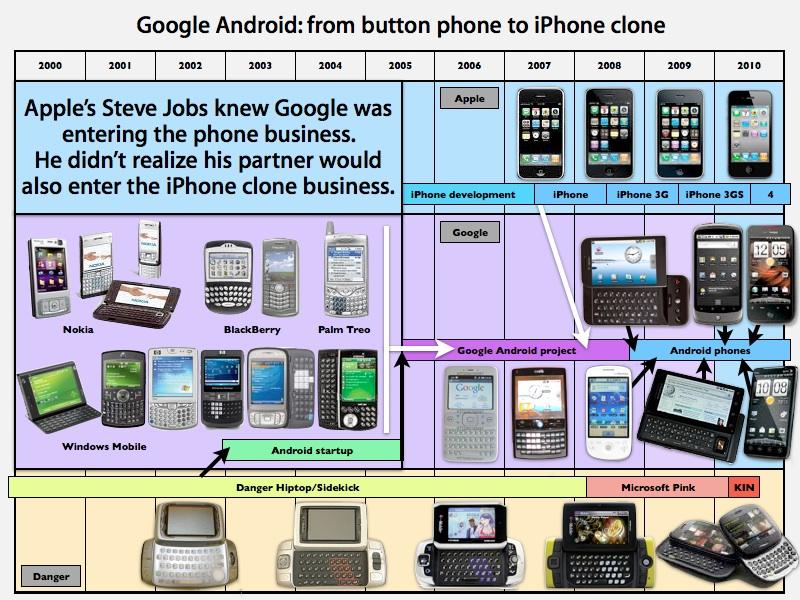
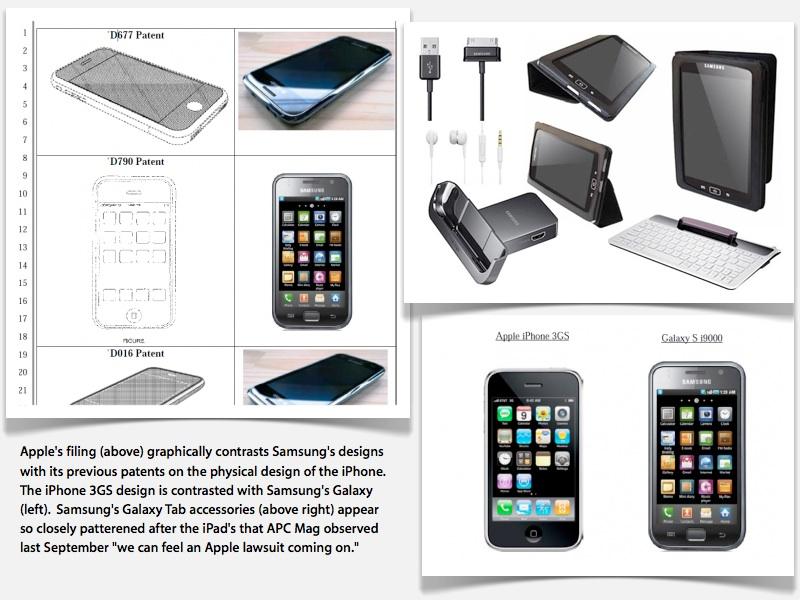
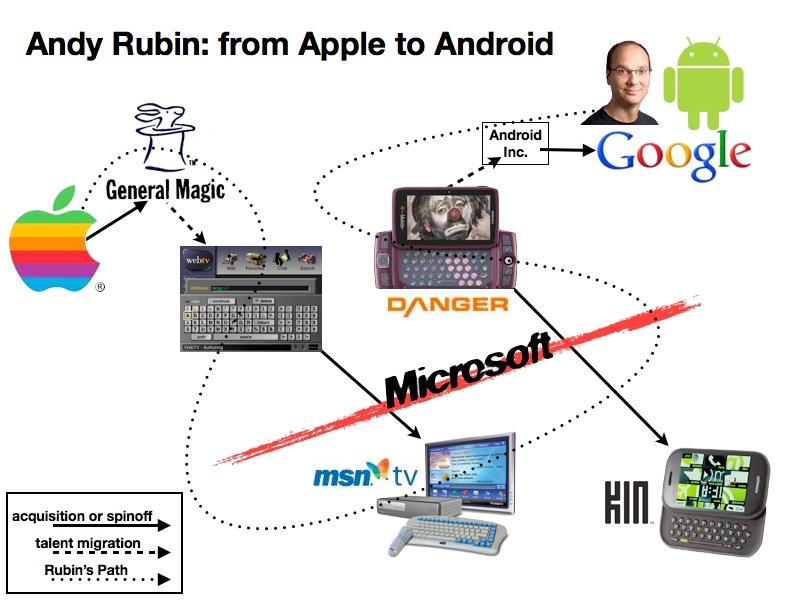
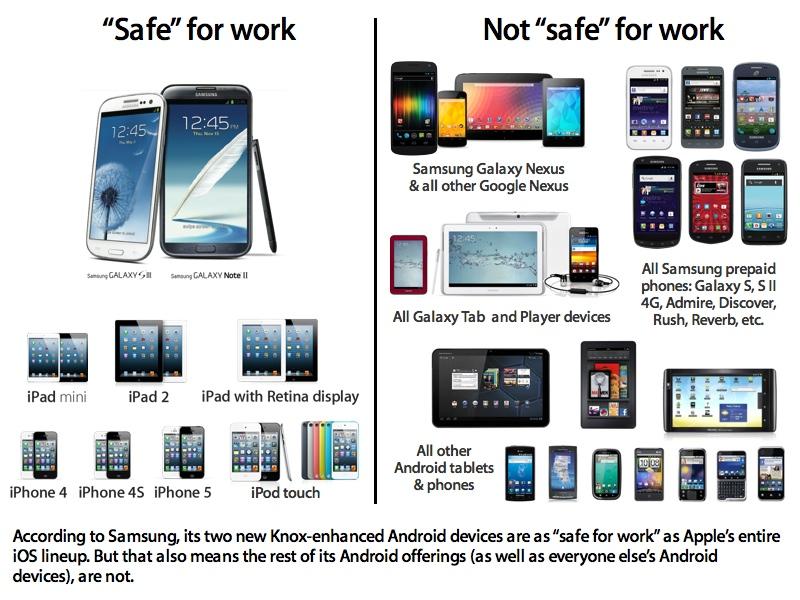

-m.jpg)






 William Gallagher
William Gallagher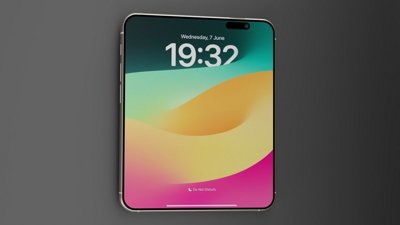
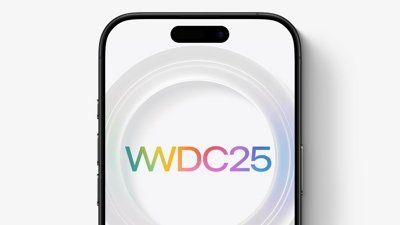

 Andrew Orr
Andrew Orr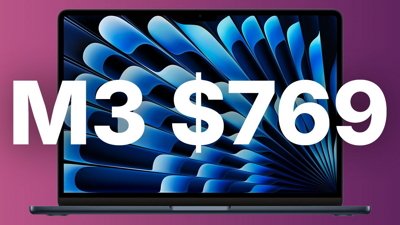
 Christine McKee
Christine McKee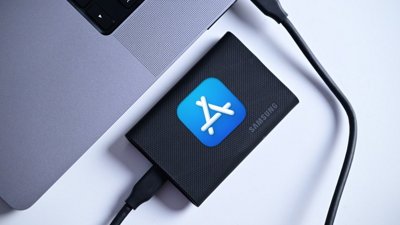
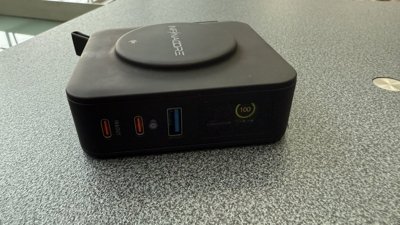
 Thomas Sibilly
Thomas Sibilly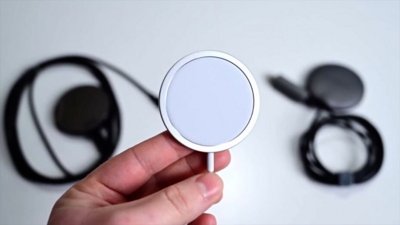
 Andrew O'Hara
Andrew O'Hara








344 Comments
Was this really supposed to go up as an article?
I agree 100%. Google is becoming the synonym of Internet: once you have to look for something, you google it and it gives you the search they like. So when you look for "what's the better phone", it's normal for them you get more favorable results on android than on iPhone . I think (and I hope) google will get the same monopolistic attention AT&T had back years ago. I hope It will happen one day that someone will have too much power and will ask them to split in different divisions
Please keep talking I find it all very entertaining to watch the sad cries of Apple users. Apple is getting out done playing its own game. Android is a very different operating system then iOS. In the beginning it had similarities to the iOS. It was competition which drove iOS and Android to where they are today. iOS is still the most stable out of them all but lacks the features Android offers. You will get what you pay for, a device that won't give you problems. It lacks openness. Sure everyone and their mothers can use it but there is little room for any extra features because Apple is so tightly packaged. I think they are both great operating systems. They both satisfy some of the same wants and lack in others. I just want someone to explain to me why this fanboy war is even happening? Without Android the iPhone wouldn't have come this far. Android wouldn't be where it is without learning from Apple. If the Windows phone was released first instead of Android I'm sure you would all be crying that Microsoft copies Apple.
Good laugh out of it. :) Odd think, some of its true.. some just silly.
Is DED drunk? I mean, I agree with most of what was said, but seriously.